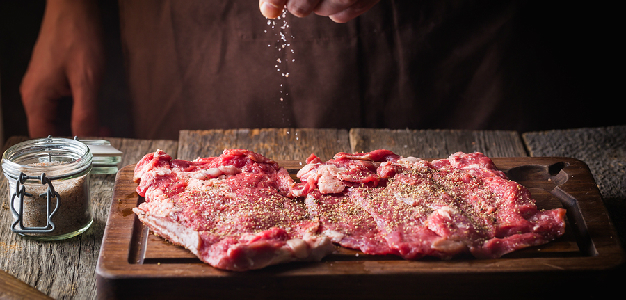Don’t panic over reports that red meat is tied to an increased risk of breast cancer, especially in post-menopausal women.
The (American) study that those reports are based on also concluded that white meat is associated with a reduced risk of breast cancer.
In recent times there’s been a steady stream of research linking red meat to cancers of various kinds. It was bowel cancer not long ago.
As I’ve said many times before, good dietary research is hard to do, so most of it is poor.
I tried to access a full copy of this study, but I can’t without paying for it, and it’s unlikely to be worth paying for. But the summary I have indicates that the research team used data collected an average of about 15 years go from women who filled in a food frequency questionnaire.
As the name implies, people are given a list, usually of around 100 or so food and drinks, and asked how often they’ve eaten them over a given time period. Human beings have many talents, but accurately recalling what they’ve eaten isn’t one of them. So that’s the first reason to raise an eyebrow.
The second concern would be their definition of red meat — or white meat for that matter. A lot of these kinds of studies lump processed and unprocessed eat in together. You don’t have to be Einstein to appreciate that there’s a big difference between pasture-raised beef, steak and lamb and the meat used in fast food chains. And someone who’s eating a lot of fast food meat may well be eating a lot of processed food generally.
In addition, these studies use statistics in an interesting way to make their case. Invariably they make the difference look far more than it is.
Finally, any assertions based on an ‘association’ between having a disease and eating particular foods should make us raise the other eyebrow. There’s no cause and effect, and no one can clearly say what’s going on.
While it’s sensible to include some non-meat meals in our week, red meat has been a part of the human diet since we lived in caves, so it’s highly unlikely to be carcinogenic. And previous studies haven’t found a link between our intake of animal protein and breast cancer.
Moreover, while meat eat eating is considered a blokey, Australian thing to do, middle-aged and older women aren’t usually chowing down on oversized t-bones. The guideline is a palm-sized amount, and if you’re having that once or twice a week there’s not a skerrick of real evidence that you’re giving yourself cancer.
As always though, buy the best quality that you can. That means animals who eat grass and aren’t in feedlots. Know how your meat is raised, if that’s possible.
The same goes for white meat. Pass on eating chicken that’s been factory farmed.
But in the end, telling us that we’re more likely to get breast cancer based on how well some women could recall what they ate is nonsense.

